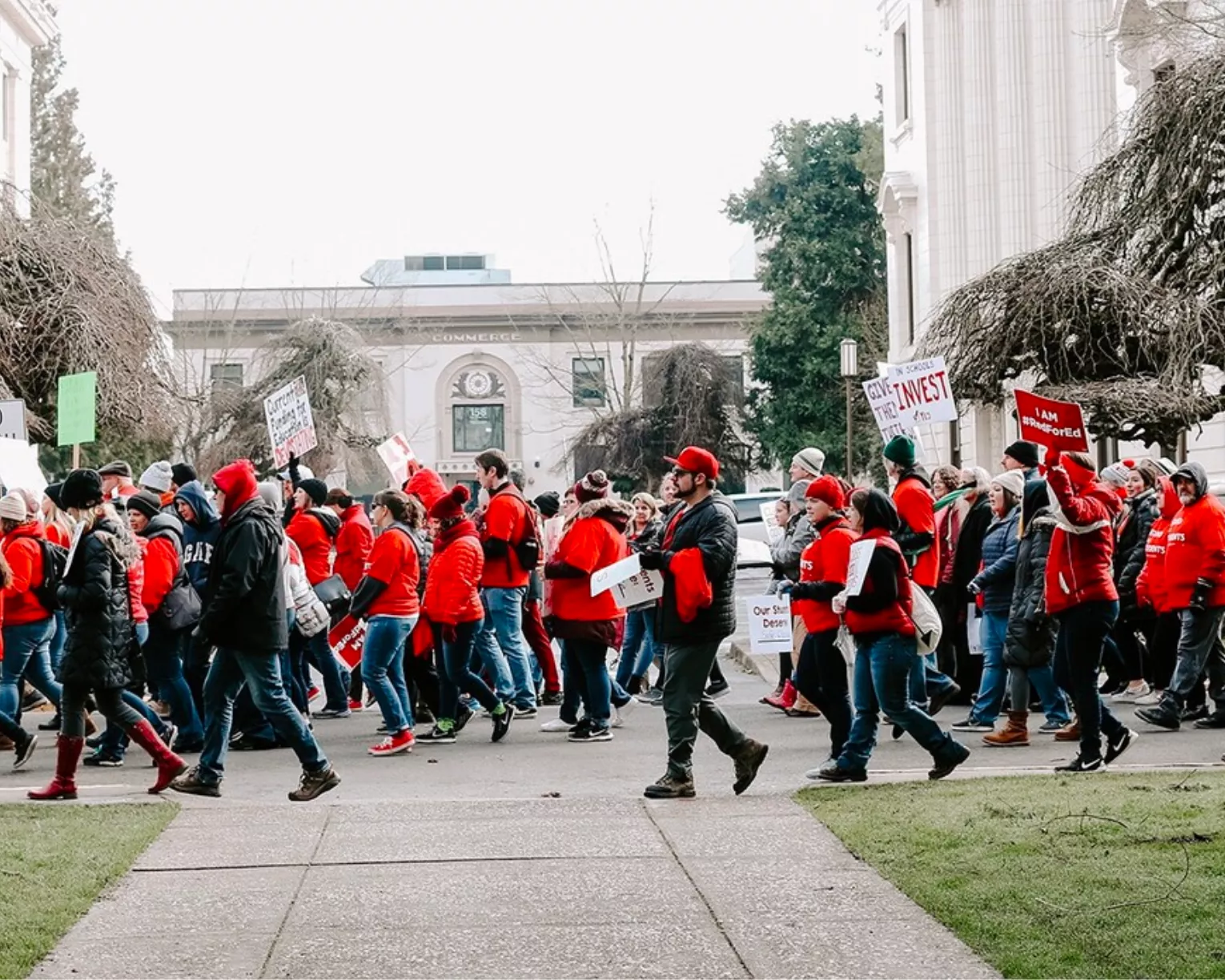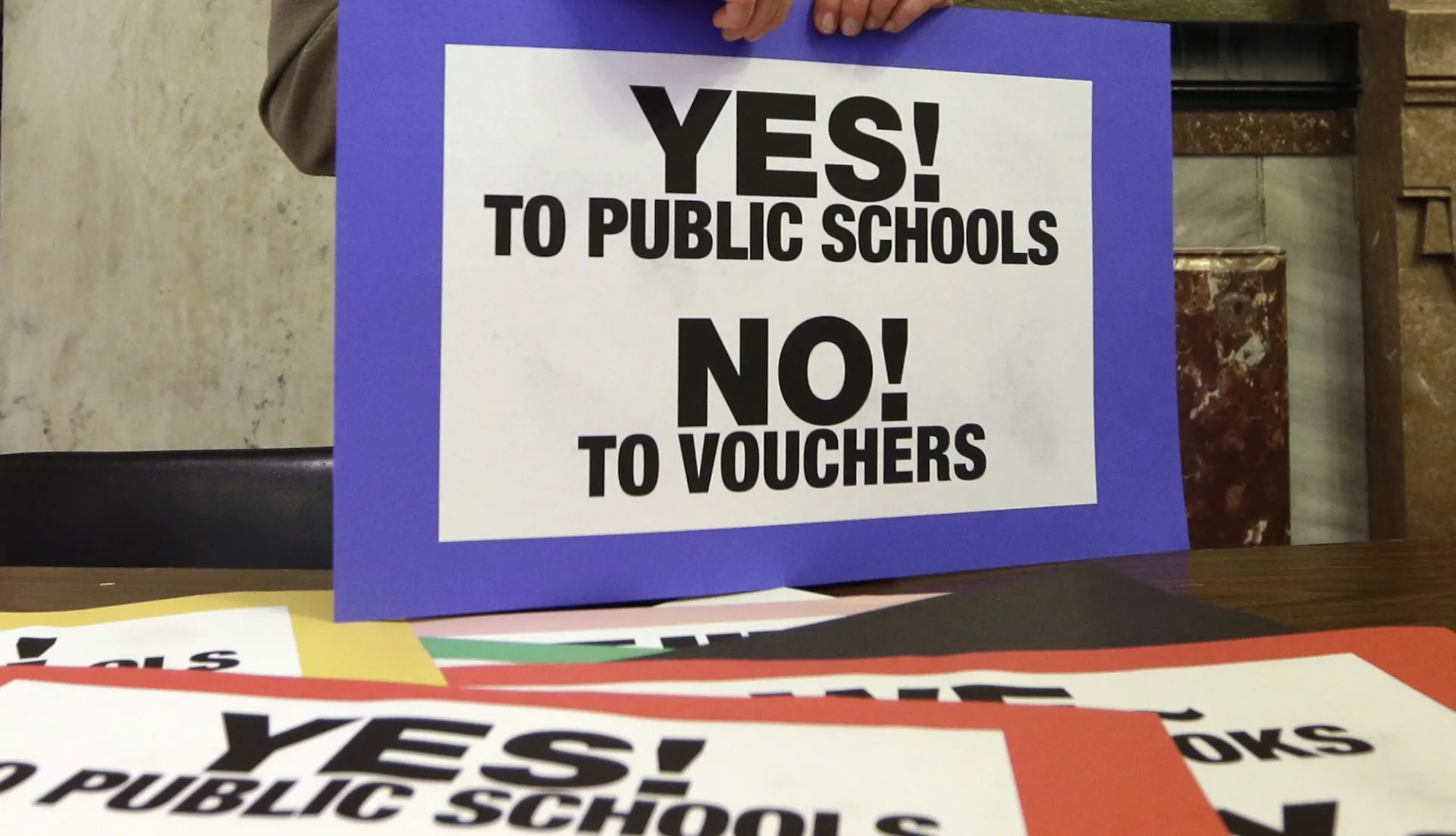On all counts, vouchers harm public education and students. Vouchers steal scarce funding from public schools—which serve 90 percent of students—and give it to private schools that are unaccountable to taxpayers.
There is ZERO reliable evidence that voucher programs improve overall student success, and some programs have even shown to have a NEGATIVE effect for students receiving a voucher.
Vouchers continue to discriminate against students with disabilities, strip away students’ human and civil rights, and exacerbate racial segregation.
What Are the Types of Vouchers?
Education Savings Accounts (ESAs) are the latest trend in publicly subsidized private school education. Also known as Education Scholarship Accounts, Personal Learning Scholarship Accounts (PLSA), or an Individualized Education Account Program (IEAP), the common factor is that these programs pay parents a large portion of the money the state would otherwise have spent to educate their children in exchange for an agreement to forego their right to a public education. Consistent with all voucher programs, they divert taxpayer funds to subsidize private choices and undermine principles of equity and accountability, all while doing nothing to improve the quality of education.
Tuition Tax Credits (TTCs) are a form of voucher that is integrated into the tax code to be used by parents to subsidize private schools. Individuals and corporations can make donations to a foundation that turns the money into private school vouchers, and they get a dollar-for-dollar tax credit in return. Corporations are more often than not the beneficiaries of these schemes, and they get a tax break while undermining the public resources in our communities, including education. TTCs reduce the amount of money available for evidence-based school improvement strategies that address the specific needs of each school community. TTCs are sometimes also deceptively called tax credit scholarships.
Refundable Tax Credit Vouchers provide a tax credit to families, reimbursing them for their own children’s private education expenses. They are frequently a form of an ESA because they can be used to pay for private school tuition as well as an array of other private expenses, but they are different from tax credit "scholarships," which are funded by tax-credited “donations” to SGOs who then distribute the funds as vouchers. These individual tax credits for private schooling expenses have existed for a long time, but it was not until recently that their caps have reached typical voucher/per pupil funding amounts of many thousands of dollars. Two prominent examples of such voucher programs are found in Oklahoma (HB 1934 of 2023) and Alabama (HB 129 of 2024).
How Did Vouchers Start? A History Rooted in Racism and Segregation
Vouchers were first created after the Supreme Court banned school segregation with its ruling in Brown v Board of Education. School districts used vouchers to enable white students to attend private schools, which could (and still can) limit admission based on race. As a result, the schools that served those white students were closed, and schools that served black students remained chronically underfunded.
The pattern of discrimination continues with vouchers today. Unlike public schools, private schools can (and some do) limit their admission based on race, gender, sexual orientation, ability, and any other number of factors. Furthermore, vouchers rarely cover the full tuition, so families who were promised a better education are left footing the bill.
Vouchers Today: Waste, Fraud, and Abuse
The lack of transparency, oversight, and accountability common in voucher programs often leads to waste, fraud, and abuse. This ranges from extravagant spending on trips to ski resorts to Arizona’s case of creating “ghost” students to defraud the state of voucher funding—even ensuring that these non-existent students had documented disabilities to prompt the highest level of payout. Further, both research and investigative reporting reveal that most new voucher users are students already enrolled in private schools. In other words, voucher expansions facilitate subsidies for well-off families at the taxpayers’ expense.
Suggested Further Reading
-
Evaluation of The DC Opportunity Scholarship Program
National Coalition of Public Education
-
Report: On negative effects of vouchers
Brookings
-
Vouchers and Public School Performance
Education Policy Institute
-
Nevada's failed universal voucher program
The Atlantic
-
The Promise and Peril of School Vouchers
National Public Radio
-
NC is spending millions on private school vouchers — but has no idea if they work
The News & Observer
Speak Up For Students and Public Schools

